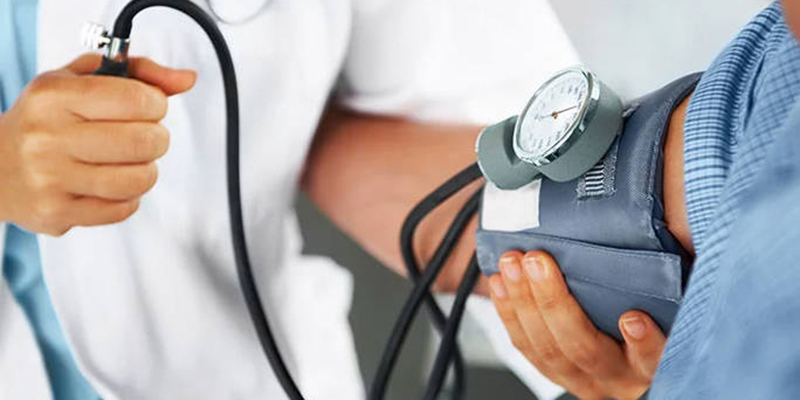Who Should Get Regular Health Screenings?
Regular health screenings are paramount for maintaining optimal health and preemptively identifying potential pathologies. These prophylactic measures can save lives and enhance quality of life. But who should prioritize regular health checks? This exegesis delves into the benefits of health screening and delineates the types of health screenings indispensable for different demographics.

Who Should Undergo Routine Medical Evaluations?
While regular health checks benefit everyone, certain groups should be particularly vigilant. These include:
Individuals with a Family History of Disease
If you have a familial predisposition to chronic diseases like neoplasms, cardiovascular disease, or diabetes mellitus, regular health checks are essential. Early detection can help manage these conditions more effectively.
People with Pre-existing Conditions
Those with pre-existing conditions such as hypertension, diabetes mellitus, or hypercholesterolemia should have regular health checks to monitor and manage their health. Regular screenings help track the efficacy of treatment and adjust as necessary.
High-Risk Lifestyles
Individuals with high-risk lifestyles, such as smokers or those with sedentary habits, should prioritize regular health checks. Regular screenings can help identify and mitigate the risks associated with these lifestyles.
Ageing Population
As we age, the risk of developing health issues increases. The senior population should have regular health checks to maintain their health and prevent potential problems early.
Regular Health Checks by Age Group
Different age groups have disparate requisites when it comes to regular health checks. Heres a delineation of recommended regular health checks for different demographics:
Children and Adolescents
Regular health checks focus on somatic and cognitive development for children and adolescents. Key types of health screenings for this age group include:
- Immunizations
- Vision and hearing tests
- Developmental screenings
- Dental examinations
Adults
Adults should prioritize regular health checks to monitor ongoing health and preempt potential pathologies. Essential types of health screenings for adults include:
- Blood pressure checks
- Lipid profile tests
- Glycemic index assessments
- Oncological screenings (mammograms, colonoscopies)
- Bone densitometry
Seniors
For seniors, regular health checks are crucial for maintaining autonomy and quality of life. Key types of health screenings for seniors include:
- Neurocognitive assessments
- Gait and balance evaluations
- Ophthalmological and audiometric exams
- Bone densitometry
Health Screening Benefits
Health screening benefits are multitudinous and can profoundly impact overall well-being. Regular health checks can:
- Detect maladies early when they are more amenable to intervention.
- Identify precursors for chronic diseases.
- Provide a baseline for health metrics, allowing for better longitudinal surveillance.
- Mitigate healthcare costs by preempting grave conditions.
- Augment life expectancy and quality of life.
Early Detection
A primary health screening benefit is early detection. Identifying diseases such as neoplasms, diabetes mellitus, and cardiovascular disease in their nascent stages can significantly ameliorate treatment outcomes. For instance, regular mammograms for women and prostate examinations for men can detect malignancies early, leading to better survival rates.
Risk Factor Identification
Another pivotal health screening benefit is the identification of risk factors. Elevated blood pressure, hypercholesterolemia, and hyperglycemia are harbingers of potential pathophysiological conditions. Regular health checks can help manage these risk factors before they culminate in severe ailments.
Types of Health Screenings
Comprehending the types of health screenings can help individuals make rational decisions about their health. Some common types of health screenings include:
- Blood pressure screening

- Lipid profile tests
- Glycemic index assessments
- Oncological screenings (mammograms, colonoscopies, prostate exams)
- Bone densitometry
- Ophthalmological exams
- Audiometric tests
Blood Pressure Screening
Hypertension is a silent male factor, often showing no symptoms until it causes significant damage. Regular sphygmomanometric checks can detect hypertension early, providing timely intervention and management.
Cholesterol Tests
Hypercholesterolemia can precipitate atherogenesis, leading to heart disease and cerebrovascular accidents. Regular lipid profile tests are essential to monitor and manage cholesterol levels, making it one of the critical types of health screenings.
Blood Sugar Tests
Monitoring glycemic levels is crucial, especially for those at risk of diabetes mellitus. Regular blood sugar tests can detect prediabetes or diabetes early, allowing for lifestyle modifications and pharmacological interventions to manage the condition effectively.
Specialized Health Screenings
While general health screenings address ubiquitous ailments, specialized screenings cater to idiosyncratic exigencies. These screenings proffer targeted diagnostics to apprehend esoteric or insidious conditions prematurely.
Genetic Testing
Genetic testing is an avant-garde type of health screening that can divulge predispositions to hereditary disorders. Comprehending one's genetic architecture facilitates the adoption of bespoke prophylactic measures and lifestyle modifications to mitigate potential risks.
Cardiac Stress Tests
Cardiac stress tests are indispensable for individuals with a heritable predisposition for cardiovascular pathologies. These regular health checks evaluate myocardial performance under duress, discerning anomalies that rudimentary tests might overlook.
Hormonal Evaluations
Hormonal dysregulations can engender a plethora of health anomalies, including endocrine disorders and reproductive dysfunctions. Regular hormonal evaluations are crucial for early detection and amelioration of these conditions, ensuring homeostatic endocrine health.
Health Screenings for Occupational Risks
Diverse professions expose individuals to unique health hazards. Understanding the benefits of health screening in the context of occupational exposure can forestall work-related pathologies.
Respiratory Screenings for Industrial Workers
Individuals labouring in environments with elevated dust, chemical, or pollutant exposure should undergo regular respiratory screenings. These screenings facilitate the early detection of ailments such as chronic obstructive pulmonary disease (COPD) and occupational asthma.
Audiometric Tests for Noise-Exposed Workers
Laborers in high-decibel environments, such as construction sites or factories, should prioritize regular audiometric tests. These regular health checks ensure the intelligent identification of auditory impairments, promoting timely intervention and protective measures.
Skin Examinations for Outdoor Workers
Those engaged in protracted outdoor activities are at an augmented risk of dermal conditions, including cutaneous malignancies. Regular dermatological screenings are imperative health screening benefits for early detection and management of integumentary anomalies.
Preventive Health Screenings for Women
Women's health requisites evolve with age, necessitating specific health screenings tailored to their physiological vicissitudes.
Mammograms and Breast Exams
Regular mammograms and clinical breast exams are indispensable health screening benefits for women over 40, ensuring the intelligent detection of mammary carcinomas.
Pap Smears and HPV Testing
Pap smears and HPV testing are critical regular health checks for female reproductive health. These screenings detect cervical neoplasms and HPV infections early, enabling prompt therapeutic intervention.
Bone Density Tests
Post-menopausal women should undergo regular bone densitometry to detect osteoporosis. These health screenings are essential for maintaining skeletal integrity and preventing osteoporotic fractures.
Conclusion
In conclusion, the health screening benefits are unmistakable and significant. Understanding the types of health screenings available and knowing who should get regular health checks can lead to better health outcomes and enhanced quality of life. Individuals can take proactive steps toward maintaining their health and well-being by prioritizing regular health checks.





